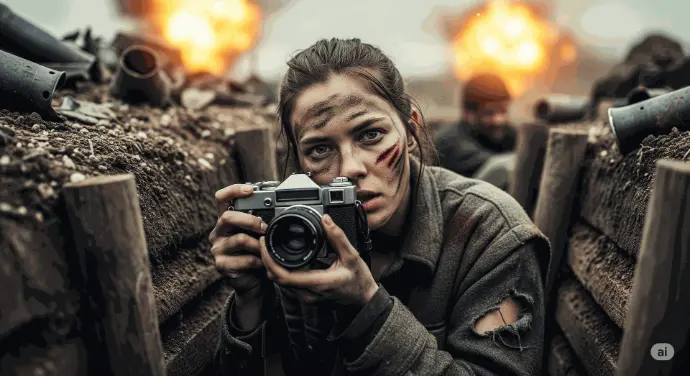
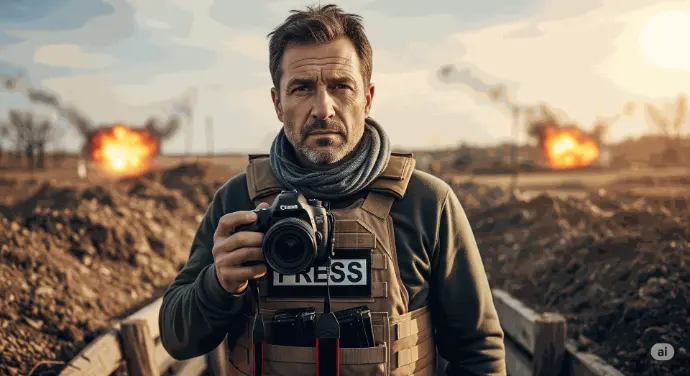
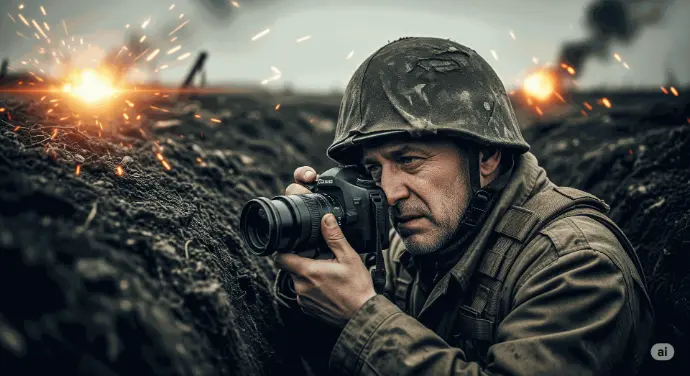
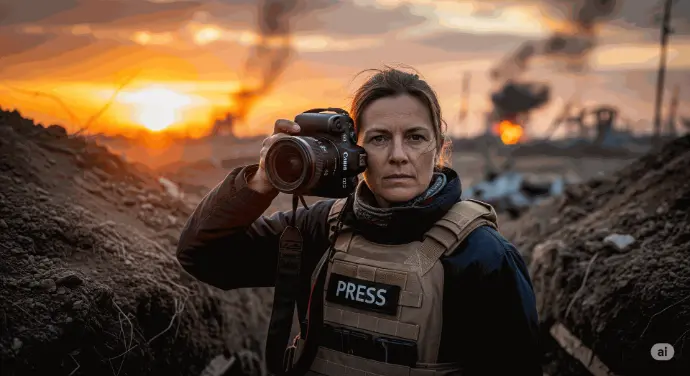
War Correspondents: Key Witnesses in Documenting Human Rights Violations
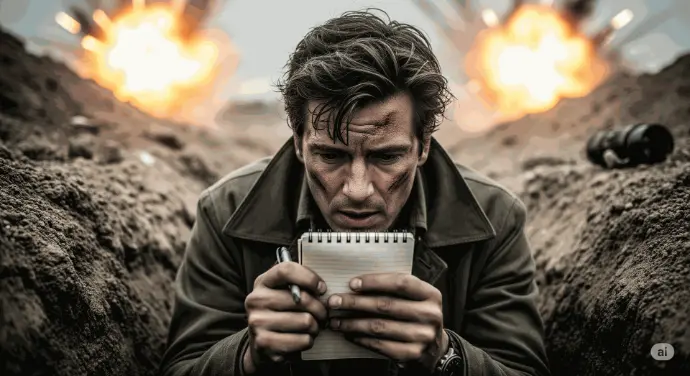
On our website, we conduct a thorough analysis of human rights worldwide. This time, we explore the interesting role of war correspondents and their vital role in capturing human rights violations. Learn how these important witnesses face risks to maintain freedom of expression and reveal the reality in conflict zones. Prepare to dive into a captivating topic with us.
Introduction
War correspondents play an important role in gathering information on human rights violations in armed conflicts around the world. Their work goes beyond just reporting; they are firsthand witnesses of difficult situations, offering a valuable perspective that helps raise global awareness about the need to safeguard fundamental rights at all times. Below, we will analyze in detail the relevance, essential role, and influence of war correspondents in promoting human rights.
War correspondents are direct observers of armed conflicts and the human rights violations that occur in these settings. Their presence allows them to directly record atrocities and abuses that might otherwise remain hidden or misrepresented. Through their reports, images, and stories, they shed light on situations that would normally remain obscure, revealing the reality of what happens in conflict zones.
Furthermore, their work contributes to accountability, since by documenting and sharing human rights violations, war correspondents exert pressure on those involved in conflicts, both locally and globally. This pressure can lead to investigations, sanctions, and measures to prevent future abuses.
War correspondents are essential in providing a detailed and accurate account of events, allowing the world to understand the true extent of human rights abuses in conflict situations.
The work of war correspondents is not limited to simply gathering information; their presence in conflict areas represents an active effort to defend human rights. By making violations visible through their reports, photographs, and stories, these professionals become advocates for truth and justice, giving voice to those who might otherwise be ignored in their accounts of suffering.
Furthermore, by reporting on human rights violations, war reporters help raise awareness and stir public opinion, fostering empathy and support for those suffering in conflict. This awareness in society is crucial to prompting governments and international actors to act effectively to safeguard and promote human rights during wars.
In this context, war reporters become fervent defenders of human rights, using their journalistic work as a means to promote justice and human dignity in difficult times.
The work of war reporters has a profound impact on global awareness of human rights. Through their stories and experiences, they capture the attention of audiences around the globe, creating empathy and support for those affected by armed conflict. Their powerful stories and courage in the face of dangerous situations help raise public awareness of the urgent need to protect and promote human rights at all times.
Furthermore, by revealing human rights violations, war reporters facilitate international pressure for concrete action. Their reports can lead to diplomatic action, investigations by international organizations, and improved efforts to protect communities affected by armed conflict.
The work of war reporters not only records human rights violations but also has a direct impact on global awareness, prompting a call to action to safeguard and defend human rights worldwide.
The Role of War Journalists in Documenting Human Rights Abuses
War journalists are essential in gathering information on human rights abuses in conflict regions. Their courage and determination lead them to face serious danger to inform the world about the atrocities occurring in these situations. These experts are at physical, psychological, and emotional risk because they work in highly dangerous and unstable environments. The possibility of injury, capture, or even death is a constant part of their daily work.
Furthermore, war journalists must navigate ethical and moral dilemmas when viewing and recording scenes of human suffering. Their ability to remain calm and objective in difficult times is key to obtaining real and accurate information about the human rights abuses they witness.
Despite these dangers, the work of war journalists is essential in highlighting human rights abuses in situations of armed conflict and in fighting for justice and accountability.
War journalists apply various strategies and tools to document human rights abuses in conflict areas. Photography and video are important resources for creating visual evidence of the atrocities they observe. Additionally, the use of recorders and hidden cameras allows them to obtain testimonies and evidence of abuses committed by different parties to the conflict.
The use of encrypted communications and virtual private networks (VPNs) is common among war journalists to protect the confidentiality of their work and avoid censorship or surveillance by local authorities. Furthermore, first aid knowledge and personal security training are crucial to ensure their physical safety in hostile environments.
The collection of forensic evidence, such as the preservation of human remains and the documentation of crime scenes, is also part of the strategies these experts employ to document human rights abuses in situations of armed conflict.
War reporters have shared moving accounts of their work documenting human rights violations in conflict-ridden areas. Many of them have been in extremely dangerous situations and have risked their lives to reveal the truth and give a voice to those who have suffered atrocities. Their accounts demonstrate the emotional and mental toll this work takes, as well as the importance of their work in raising awareness and promoting actions that promote justice and protect human rights.
These stories also underscore the need to offer emotional and psychological support to war reporters, who often suffer trauma resulting from their exposure to extreme violence and human suffering. Listening to their accounts brings us closer to the reality of war conflicts and reminds us of the courage and sacrifice of those who dedicate their lives to documenting and denouncing human rights violations around the world.
The work of war reporters in documenting human rights abuses has been essential in many conflicts throughout history. A notable case is that of Marie Colvin, an American journalist who documented the massacre at the Yarmouk refugee camp in Syria, revealing to the world the brutality of the conflict there. Her reports and accounts were crucial in raising awareness of the humanitarian crisis in Syria and pressuring the international community to act.
Another significant example is that of Tim Hetherington and Chris Hondros, who lost their lives in Libya in 2011 while documenting the conflict. Their courageous visual work left a powerful legacy, showing the suffering of the civilian population and exposing the human rights violations that occurred during the conflict. Their photographs and accounts remain a reminder of the importance of the work of war reporters in exposing abuses.
Furthermore, the case of Anna Politkovskaya, a Russian journalist murdered in 2006, represents a sad example of the dangers war reporters face. Politkovskaya thoroughly documented human rights violations in Chechnya, exposing abuses committed by Russian forces and the Chechen government. Her courageous work highlighted the brutality of the war in the region, despite the constant threats and dangers she faced. These high-profile cases illustrate the critical importance of war reporters in documenting human rights violations worldwide.
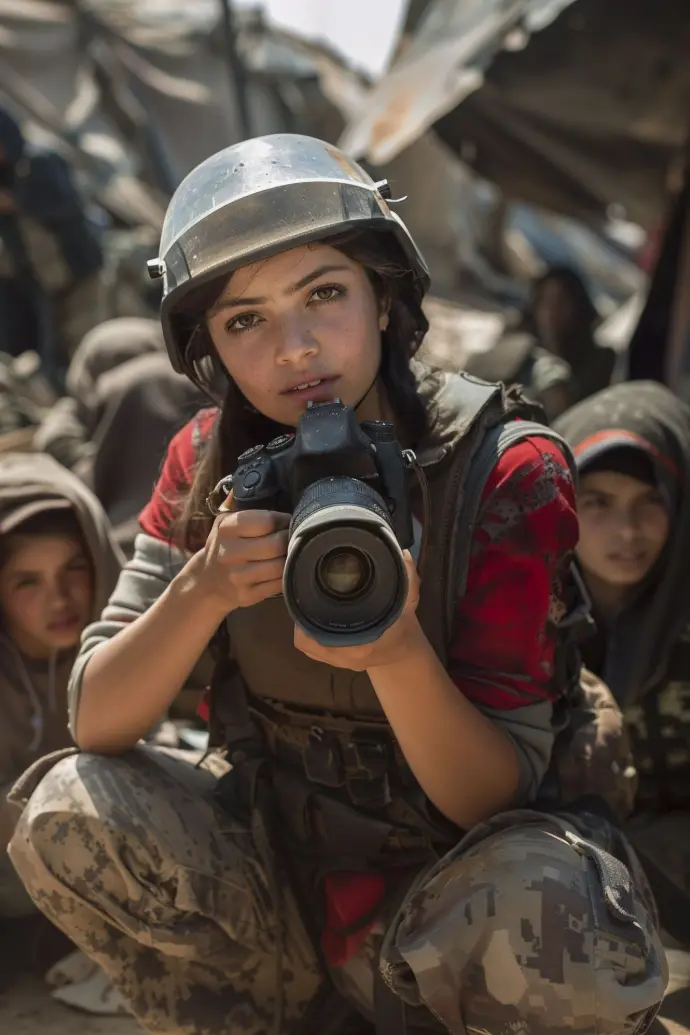
The Impact of War Journalists' Work on Global Human Rights Awareness
War journalists play a vital role in disseminating information and raising global awareness about human rights. Their courageous work takes them to conflict zones to record and expose human rights violations that occur during war. Through their articles, images, and stories, these communicators risk their lives to give a voice to those who suffer and to inform the world about the atrocities that occur in situations of armed conflict. Their work is essential to keeping the public informed about the state of human rights in war-affected regions.
War journalists face extreme challenges, including censorship, repression, and constant physical danger. Their work requires them to enter areas devastated by fighting, putting themselves in situations of great risk to document events that might otherwise go unreported. Furthermore, their presence on the ground allows them to obtain direct evidence and firsthand testimony, which is crucial to exposing human rights violations. Their work often helps raise awareness and call for action to protect vulnerable populations during armed conflicts.
The work of war journalists not only informs the public but also generates a global understanding of the need to safeguard and promote human rights around the world. Their reports, by depicting the brutal reality of war, inspire empathy and solidarity among their audiences, promoting understanding and support for humanitarian aid initiatives and the defense of fundamental rights. In this sense, their work not only documents human rights violations but also helps mobilize citizens and strengthen international solidarity in the defense of these rights.
Reports produced by war journalists have a significant impact on public opinion and international policy. By highlighting human rights violations in conflict contexts, these reports encourage debate, reflection, and mobilization in society. Disseminating these stories through the media helps shape a well-informed public opinion committed to defending human rights worldwide.
Furthermore, the work of war journalists can influence political and diplomatic decisions. Exposing war crimes and human rights abuses in conflict situations can motivate the international community to take action, such as imposing sanctions, conducting investigations, or increasing peacekeeping missions to protect those affected. Thus, the work of these journalists not only makes human rights violations visible but can also help pressure concrete actions for their protection.
The work of war reporters plays an important role in raising global awareness about human rights. Their reports not only provide information but also motivate actions and decisions at both the local and international levels to safeguard fundamental rights in conflict situations.
The recording of human rights abuses by war correspondents can have important repercussions in several ways. First, their reports can help expose and condemn war crimes and human rights violations, which can result in those responsible facing justice, whether national or international. Furthermore, media attention on these abuses can create pressure to halt hostilities and establish protective measures for affected populations.
On the other hand, the work of war correspondents can also carry risks to their own safety. Revealing the truth about what is happening in conflict areas can provoke reprisals from those who commit human rights violations, endangering the lives and safety of the journalists who carry out this work. Guaranteeing the protection of war correspondents and their activities is essential to ensure they continue to document and report on human rights abuses in conflict contexts.
The work of war journalists in documenting human rights abuses has consequences both for the exposure and condemnation of these crimes and for the safety and security of the reporters themselves. Their efforts are key to raising awareness about the human rights situation in conflict areas and to fostering global awareness and action in favor of their protection and defense.
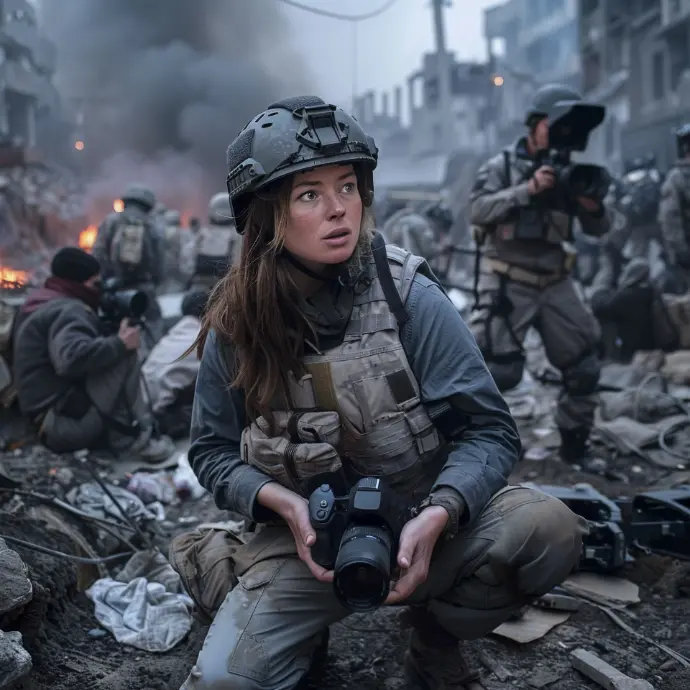
The Ethical and Professional Role of War Reporters in the Protection of Human Rights
War reporters play an essential role in recording human rights violations during conflicts, as their work focuses on providing an accurate and honest account of the circumstances of these events. Journalistic ethics are vital to their work, as they must balance the urgency of informing the world about these violations with the obligation to protect those involved in these conflicts from further risk.
The ethical mission of war reporters also includes presenting the facts impartially, without distorting information to benefit any of the parties in the conflict. Ensuring accuracy and impartiality in their coverage is key to ensuring their work truly supports the protection of human rights.
Furthermore, war reporters must be aware that their work can significantly influence how the world views conflicts and human rights violations. Therefore, accuracy and ethics in their work become an inescapable duty to society and the victims of these violations.
War reporters maintain an implicit commitment to accuracy and impartiality when reporting on armed conflicts and human rights violations. Their work goes beyond simply transmitting information; it seeks to create a significant social impact that highlights injustices and promotes the protection of fundamental rights around the world.
By capturing human rights violations, war reporters help raise global awareness of these issues, which can lead to international pressure to implement actions that protect affected populations. Their work, therefore, goes beyond merely reporting and becomes a tool for the defense and protection of human rights in conflict situations.
Additionally, their dedication to accuracy and fairness in conflict coverage helps combat disinformation and narratives that attempt to justify or minimize human rights violations, thus strengthening the fight for justice and accountability in these settings.
War reporters face several ethical challenges and problems in their work, especially in places where human rights are constantly violated and security is unstable. The urgency of obtaining immediate information and the competition to be the first to report can lead to ethical dilemmas, as confirming the veracity of events often requires time and care.
Additionally, being in very difficult and traumatic situations can affect the mental and emotional health of war reporters, creating further challenges for their self-care and psychological well-being. Finding a balance between the need to report and protecting their physical and emotional well-being is a constant ethical dilemma for those who do this work.
Similarly, the pressure to capture powerful images and moving stories can give rise to ethical dilemmas regarding respect for the dignity of people suffering from conflict, which requires careful reflection on the limits of graphically depicting violence and human suffering.
Conclusions
War correspondents play a pivotal role in defending human rights by exposing the harsh and often heartbreaking realities of armed conflict. They often risk their lives to inform the world about human rights violations occurring in conflict zones.
The courage and commitment of war correspondents deserve special recognition, as their work significantly contributes to global awareness of human rights violations. Their reports provide a unique and direct view of the situation on the ground, allowing the international community to understand the scale of abuses and take action to address them.
The future of war correspondents in documenting human rights violations faces significant challenges. With the advancement of technology, new opportunities for information gathering are opening up, but additional risks also arise for the safety of these professionals. It is critical that war correspondents be provided with support and protection, and that an enabling environment be fostered for their journalistic work in conflict zones.

 IHRO NEWS
IHRO NEWS